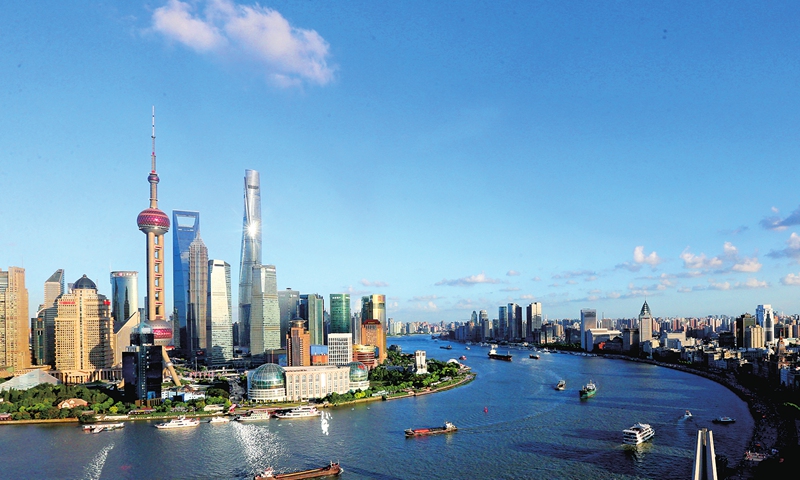
File photo shows a view of the Lujiazui area in Shanghai.Photo:Xinhua
Shanghai on Monday launched a special campaign to correct misconduct in pharmaceutical sales and healthcare services, as Chinese authorities intensified anti-corruption efforts in the medical sector.
Thirteen departments including the Shanghai Municipal Health Commission jointly issued a notice requiring anti-corruption inspections at medical institutions. The inspections involve the use of high-value consumables and misconduct such as bribes.
The notice requires all medical institutions to conduct self-examination and self-correction and to submit reports to the Shanghai Municipal Health Commission before October 31.
The campaign comes as China has strengthened its anti-corruption efforts in the medical and healthcare field.
The Central Commission for Discipline Inspection on Tuesday issued a document aiming to tackle bribery and corruption cases in the healthcare sector.
In July, the National Health Commission, the National Healthcare Security Administration, the State Administration for Market Regulation and six other government agencies launched a year-long campaign on rectification of corruption in the pharmaceutical industry, according to a statement on the health commission's website on July 21.
It stressed that the authorities will conduct in-depth and systemic governance of the pharmaceutical industry, with key figures and key links including manufacturing, supply and sales in focus, in order to weed out corruption.
On July 28, the Central Commission for Discipline Inspection, the country's top graft buster, held a meeting in Beijing to make preparations for the campaign.
As of July 26, at least 155 hospital chiefs across the country were being probed for allegedly violating laws and regulations, double the number in 2022, the Securities Times reported, citing industry information provider Saibailan.
Against this backdrop, many medical academic conferences have been postponed. According to 21st Century Business Herald, at least 10 upcoming medical industry conferences and forums have been postponed in August. In addition, some study classes and training courses have also announced postponements.
China's anti-corruption campaign targeting the pharmaceutical and healthcare sectors will benefit long-term development and the wellbeing of the people, analysts said.
The government's strong measures against corruption in the healthcare sector reflect the commitment to ensuring the healthy development of the industry and safeguarding the public interest, Lu Buyun, a health business analyst, told the Global Times on Tuesday.
Anti-corruption efforts in the healthcare sector have a positive impact on improving the fair distribution of medical resources, ensuring that they are used efficiently and equitably for the benefit of the public, Lu said.




